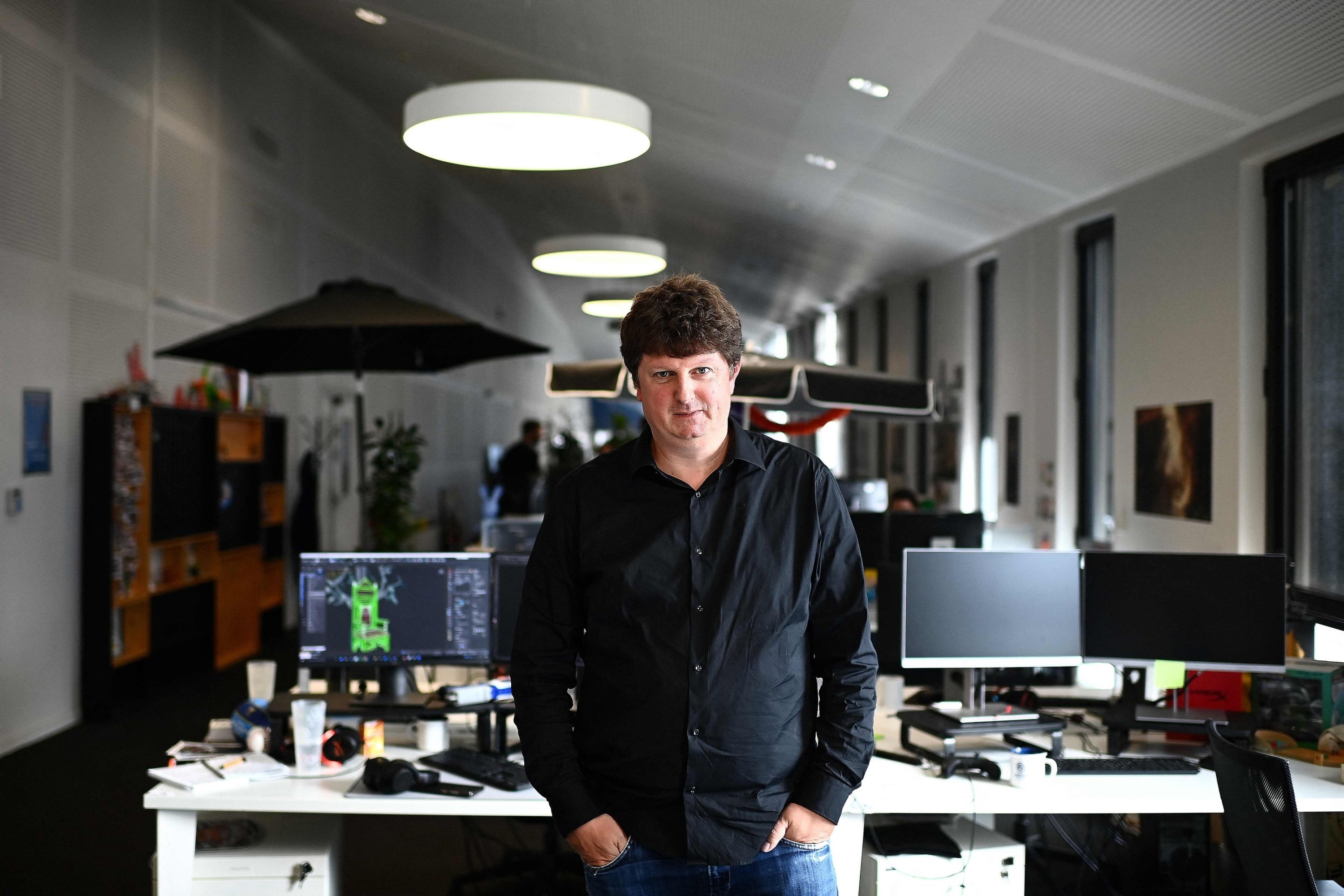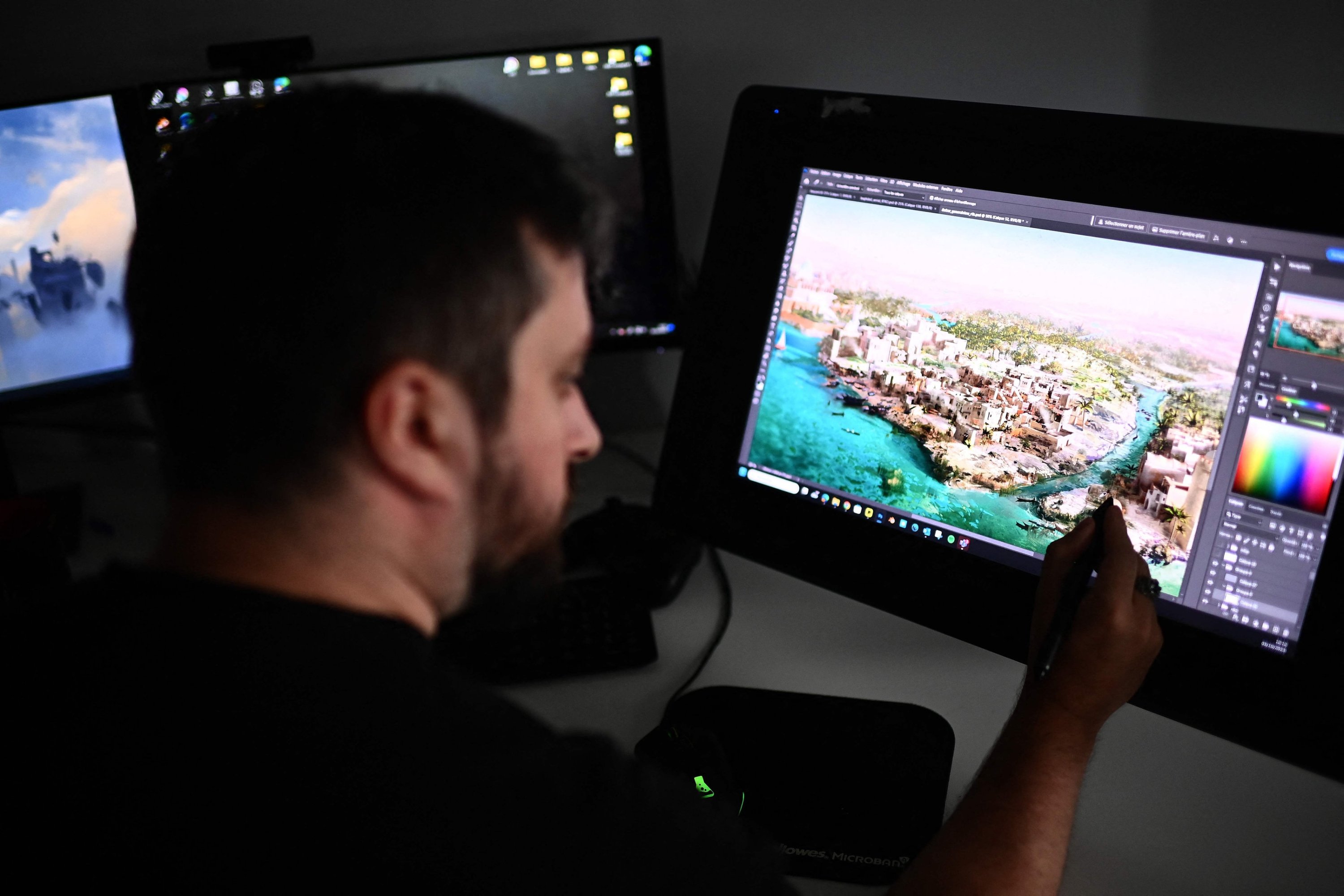© Turkuvaz Haberleşme ve Yayıncılık 2026
Since its inception in 2007, "Assassin's Creed" has achieved remarkable success, boasting over 200 million copies sold, a star-studded spin-off movie, and a prestigious Grammy Award, solidifying its status as a gaming powerhouse.
As fans await Thursday's release of the latest edition, "Assassin's Creed Mirage," Agence France-Presse (AFP) takes stock of the game's unique journey.
From the bazaars of the Holy Land in the era of the Crusades to revolutionary France via the snowy Nordic coasts of the Viking period, the "Assassin's Creed" series has served up a wild ride through time and space.
For the latest edition from its publisher Ubisoft, the game goes back to its Middle East roots, this time to 9th-century Baghdad.
But whatever the time period, the basic gameplay always involves a lot of killing.
Players hack with swords, slay with arrows, decapitate with shields, strangle, bomb, and beat to death anyone who gets in their way.
The main character, often a hooded and stealthy assassin, handily has a machine that allows him to access the DNA of long-dead relatives, meaning the possibilities for mayhem are unshackled by time or science.

The series was a hit from the start, with the first game selling more than eight million copies worldwide between its 2007 release and 2009 when the second episode was launched.
And the longer it has gone on, the more popular it has become.
France-based Ubisoft said the last release in 2020, "Valhalla", was the most successful so far in the series, generating revenue of more than 1 billion euros ($1.05 billion).
"Valhalla" broke new ground in other ways too.
In February 2023, it won the first Grammy Music Industry Award dedicated to video game scores for its American composer Stephanie Economou.
The game's take on history has not exactly proved universally popular.
French leftist firebrand Jean-Luc Melenchon accused the makers of 2014's "Assassin's Creed Unity" of "propaganda against the people" for its depiction of the nobility during the French Revolution as "poor little people."
"And the man who was our liberator at one point during the revolution, Robespierre, is presented as a monster," he said.
Ubisoft said it employed "dozens of historians, sociologists and other social science researchers" to keep its history accurate.

The "Assassin's Creed" saga followed the familiar path of successful video games into the cinema in 2016 with the release of a movie of the same name.
While the cast was stellar – with Michael Fassbender and Marion Cotillard leading the line – the reviews were less so, and rumors of a big-screen sequel have remained just that.
Ubisoft was undaunted though, and closed a deal with Netflix in 2020 to develop several series based on the franchise.
The saga also has spin-off comics and podcasts.
Mobile gaming is likely to feature heavily in the game's future.
Ubisoft has already signed a deal worth an initial 370 million euros with a subsidiary of Chinese giant Tencent, the undisputed number one in the sector, for mobile gaming rights.
The deal was described by Ubisoft, which has separately received huge investments from Tencent, as "one of the largest" the industry has ever seen.
The first title is already being developed – "Assassin's Creed Jade" – an open-world mobile game unsurprisingly set in Imperial China.
